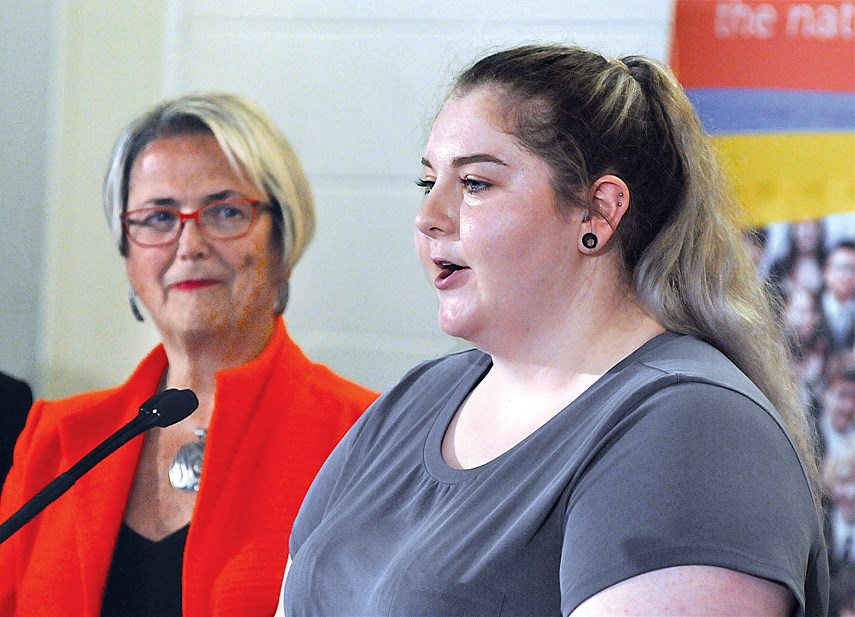Mountainside student Elysia Dalgarno remembers the time when the darkness descended.
She was still in elementary school when she started experiencing crippling anxiety.
Her doctor told her to change her diet, but that didn’t help.
In high school, she started missing school, but no red flags went up. Teachers assumed she was just skipping classes, she said. But that wasn’t the case. “I was paralyzed by anxiety. I could not get out of bed in the mornings.”
She started slipping into depression.
Finally she saw a psychiatrist who diagnosed the problem. She also transferred to Mountainside, North Vancouver’s alternate school, where supports for students with mental health challenges are provided on site.
That has made a world of difference, said Dalgarno, who graduates this month.
“There are just so many resources at Mountainside,” she said, noting the regular help from nurses, doctors and counsellors at the school. “You really get that one-on-one connection.”
“My teachers text me to check up on me on weekends sometimes if they know I’ve had a rough week.”
Soon, more students will have access to the help offered at Mountainside, with the launch in September of a new pilot program that aims to connect students at other North Vancouver schools with those supports. The province is providing $225,000 to fund a co-ordinator who will help students connect with help available.
If the program is successful, it could expand to other school districts in the province.
Currently it’s hard for families to know where to turn for help, said Judy Darcy, minister of mental health and addictions, at an event marking the announcement of the project in North Vancouver June 13.
“You go to one place . . . you’re told no, you don’t quite fit into this box,” she said.
Then that story gets repeated at the next place.
Having help for mental health issues in schools is crucial to early intervention, said Darcy. “The best way to reach young people with mental health and addictions supports is to bring those services to them – to schools where they spend most of their time,” she said.



